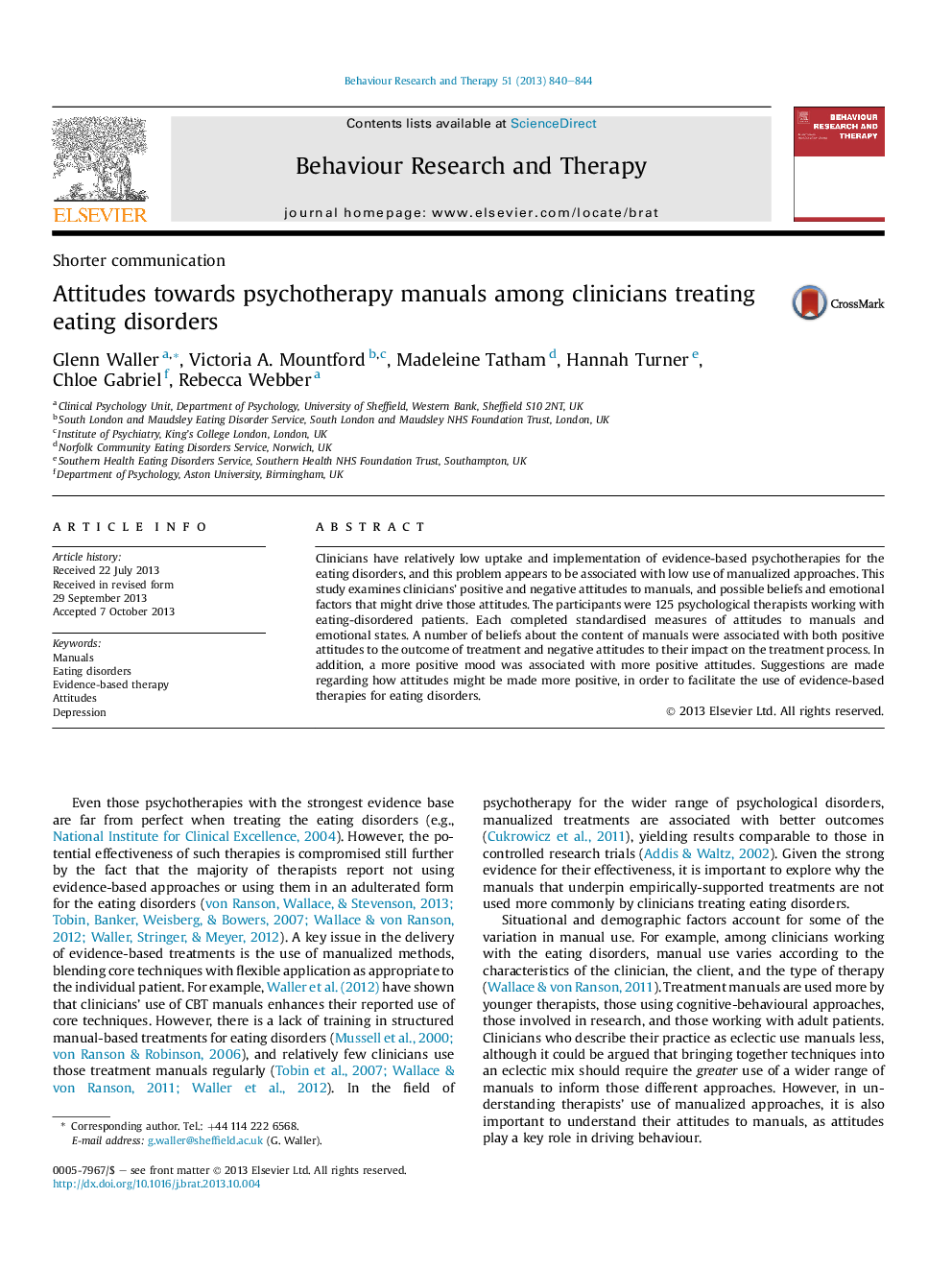| Article ID | Journal | Published Year | Pages | File Type |
|---|---|---|---|---|
| 10444442 | Behaviour Research and Therapy | 2013 | 5 Pages |
Abstract
Clinicians have relatively low uptake and implementation of evidence-based psychotherapies for the eating disorders, and this problem appears to be associated with low use of manualized approaches. This study examines clinicians' positive and negative attitudes to manuals, and possible beliefs and emotional factors that might drive those attitudes. The participants were 125 psychological therapists working with eating-disordered patients. Each completed standardised measures of attitudes to manuals and emotional states. A number of beliefs about the content of manuals were associated with both positive attitudes to the outcome of treatment and negative attitudes to their impact on the treatment process. In addition, a more positive mood was associated with more positive attitudes. Suggestions are made regarding how attitudes might be made more positive, in order to facilitate the use of evidence-based therapies for eating disorders.
Related Topics
Health Sciences
Medicine and Dentistry
Psychiatry and Mental Health
Authors
Glenn Waller, Victoria A. Mountford, Madeleine Tatham, Hannah Turner, Chloe Gabriel, Rebecca Webber,
